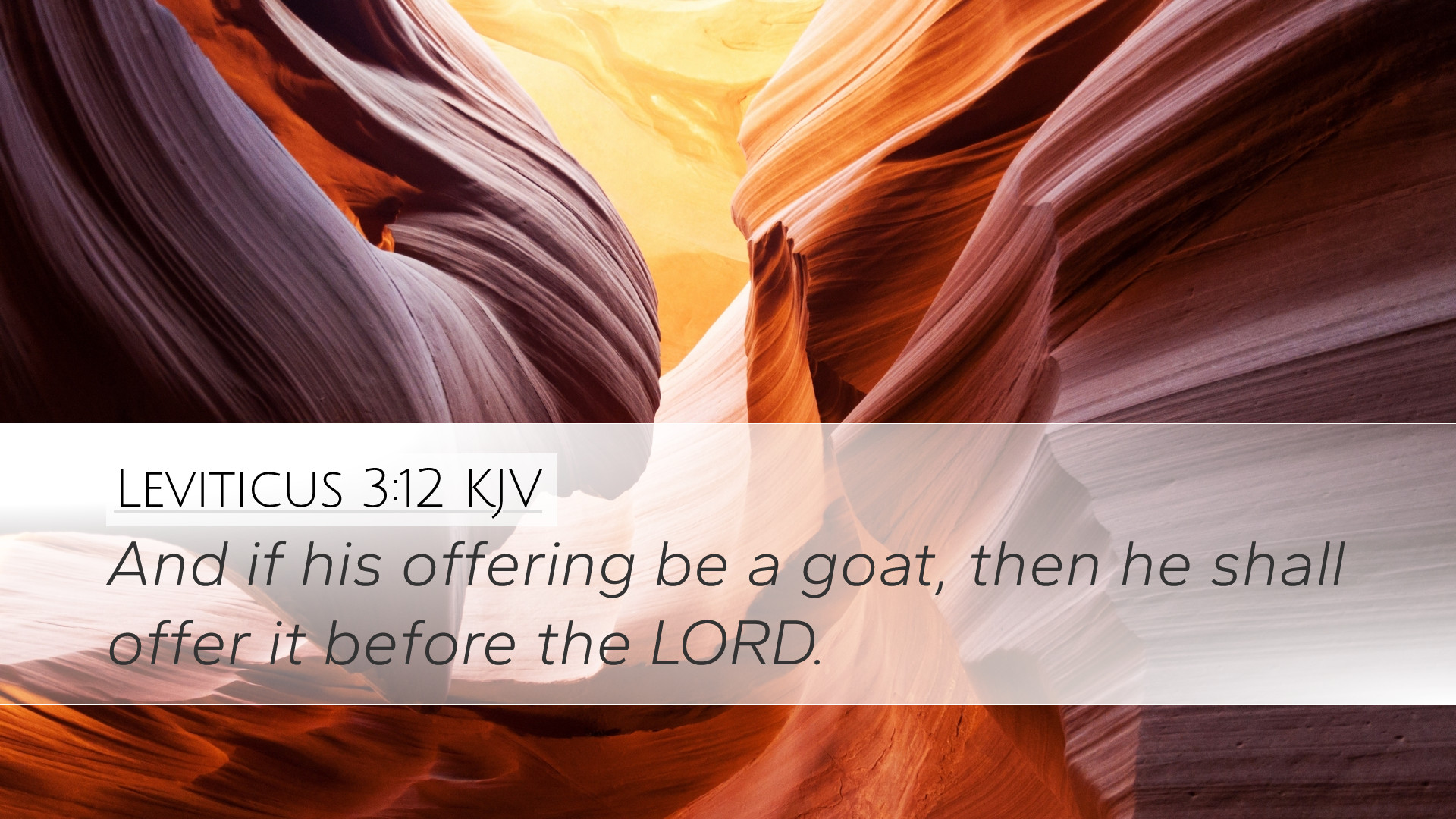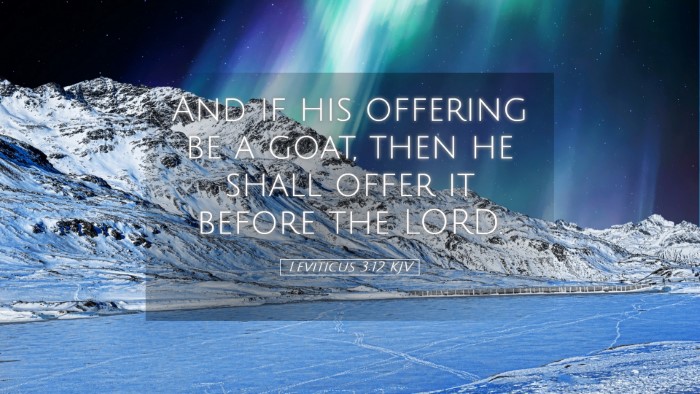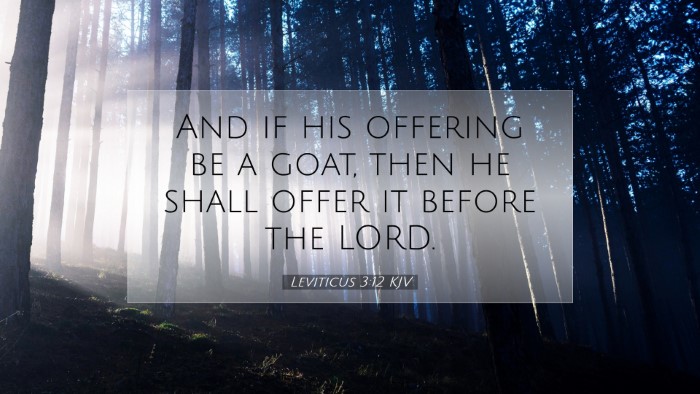Commentary on Leviticus 3:12
Verse Context: Leviticus 3:12 states, "And if his offering be a goat, then he shall offer it before the LORD." This verse is part of the specifications regarding peace offerings, delineating the types of animals acceptable for such sacrifices and the ritual actions associated with their presentation.
Overview of Levitical Offerings
The Book of Leviticus serves as a codex for the priests and the worshippers of Israel, detailing the laws and offerings required for proper worship. Commentary from Matthew Henry notes that offerings express the relation between God and worshippers, symbolizing reconciliation and peace.
Types of Offerings
- Burnt Offerings: Symbolizing total surrender to God.
- Grain Offerings: Representing gratitude for God’s provision.
- Peace Offerings: Celebrating friendship and communion with God.
- Sin Offerings: Acknowledging the need for atonement.
Specific Insights on Leviticus 3:12
1. The Goat as an Offering
Albert Barnes emphasizes that the use of a goat signifies a particular aspect of atonement and expiation. It is a common animal that reflects the humility of the offerer and the communal nature of the offering.
2. The Ritual of Offering
Adam Clarke points out the importance of the presentation before the LORD, indicating that the manner in which the offering is made is crucial. The act of bringing the goat before God symbolizes a public acknowledgment of dependence on God for sustenance and peace.
Theological Implications
This verse points to a deeper theological theme that connects humanity's need for peace with God, as highlighted by Henry: peace offerings were a way to express gratitude and harmony. They were not just about appeasement but also about communion with God.
Symbolism of the Goat
The symbolism of the goat furthers the understanding of Christ as the ultimate sacrifice. As Barnes articulates, the type and significance of offerings in Leviticus anticipate the fulfillment found in Christ's atonement, drawing parallels between the sacrifice of the goat for the community's peace and Christ's sacrifice.
1. Community and Individual Responsibility
The peace offering allowed for both individual and communal participation, which speaks volumes to the health of a community. As Adams notes, these acts of offering were communal activities that reinforced relationships among the people and with God.
2. The Joy of Fellowship
The peace offering also had a celebratory aspect. The offerer partook of the sacrifice, enjoying a meal in fellowship with family and friends, illustrating the joy of having peace with God, as expounded by Henry in his commentary on the relational aspect of God’s forgiveness.
Practical Applications for Modern Believers
Leviticus 3:12 reminds believers today of the importance of approaching God with the right heart and intention. Albert Barnes articulates that the principle of offering is about acknowledging our need for God's peace through Christ.
1. Acknowledgment of God’s Provision
Application: Just as the Israelites offered their goats, modern believers are encouraged to acknowledge God’s provisions in their lives. Regular acts of thanksgiving can serve as peace offerings in today’s context.
2. The Importance of Community in Worship
Application: Just as the peace offering invited communal celebration, believers should engage in communal worship and activities that foster fellowship among themselves and with God.
Conclusion
In conclusion, Leviticus 3:12 not only provided regulations for the Israelites regarding their offerings but also sets a foundational understanding of how God desires peace and communion with humanity. The integration of insights from Matthew Henry, Albert Barnes, and Adam Clarke reveals the richness of scriptural interpretation and its implications for worship and community today.


